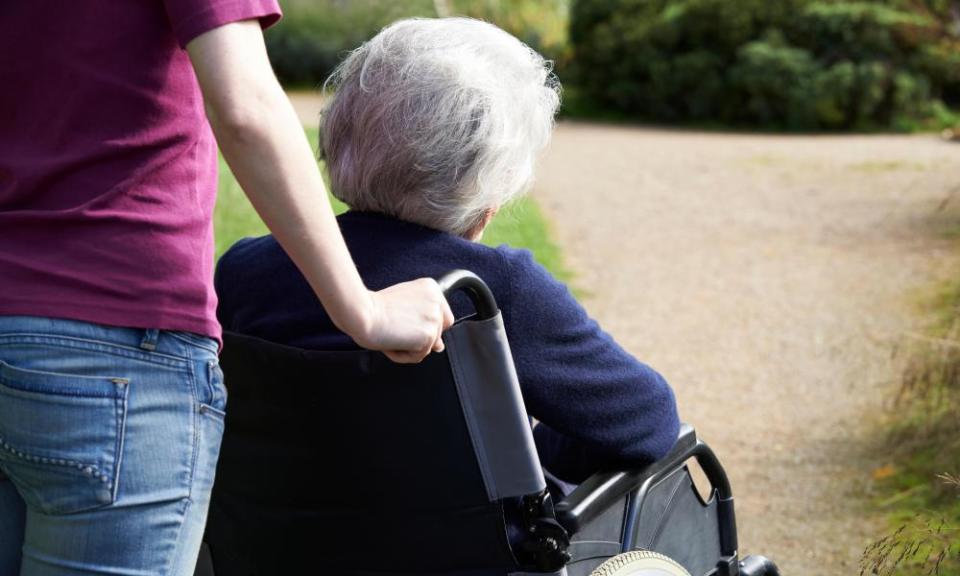From funding to a right to care: the aged care royal commission's key recommendations

Australia’s aged care sector is set for a “generational paradigm shift”, according to Scott Morrison, after the royal commission into the system laid bare deep-rooted “neglect and abuse” of older Australians and delivered recommendations for a path forward.
The royal commission has made 148 recommendations to address structural issues in funding and governance, formulated after evidence from 641 experts, residents and families over almost 100 hearing days since the prime minister ordered the inquiry in October 2018.
While the commissioners, Tony Pagone and Lynelle Briggs, arrived at slightly different recommendations regarding governance and how best to raise the billions of dollars in additional funds needed, experts believe the release of their report is a crucial opportunity to address a failing system.
Related: Australia's aged care system needs massive investment, damning royal commission report finds
Morrison has framed his government’s plan for the system as recalibrating it to place older Australians at the “centre” of the care being provided, with the government now considering which approach to mending the sector it will adopt in the lead-up to the 11 May federal budget.
Here are some of the key recommendations:
Funding
Central to the recommendations is the overhaul of the 1997 Aged Care Act, which the commission found had been motivated by government attempts to make budget savings.
The commission has recommended significant changes to the fees and personal contributions required from older Australians, including what it describes as a “simpler and fairer approach” to means testing.
The commissioners were unanimous in their assessment that the sector needs significant funding boosts and favour a levy, similar but separate to the Medicare levy, to raise funds from taxpayers.
Pagone believes the Productivity Commission should be tasked with investigating and determining the amount of the levy, while Briggs – a former chief executive of Medicare – has recommended a flat rate of 1%.
Both commissioners are also in favour of bolstering the role of an independent pricing authority for the sector, with Pagone going so far as to recommend that a new body be established for this.
New aged care act and a right to quality care
To replace the Aged Care Act, the commissioners have proposed legislation that defines aged care with references to maintaining the independence of older Australians, including their mental and physical capacities, and levels of “social participation accessible to members of society generally”.
To do this, they recommend a system based on “a universal right to high quality, safe and timely support and care”.
The act would also enshrine rights to be free from mistreatment and neglect, as well as free from “degrading or inhumane treatment or any form of abuse”, the ability to exercise choice over their care and to retain general autonomy, including “freedom of movement and freedom from restraint”.
The commissioners recommended a new aged care act be put in place by 1 July 2023.
Governance and administration of aged care
The commissioners were split on how to best govern the sector.
Pagone has recommended the establishment of an Australian aged care commission, separate from the Department of Health, to administer the sector, so aged care administration can be “independent of ministerial direction”.
Briggs did not support this measure, instead calling for an elevation of aged care within the department – by rebranding it the department of health and aged care, with an associate secretary for the department to be the principal policy adviser for aged care.
Both Pagone and Briggs have called for the creation of an inspector general of aged care to identify and investigate systemic issues and to report its findings.
Briggs also called for the abolishment of the Aged Care Safety and Quality Authority – the sector’s watchdog – and for it to be replaced with a new independent authority.
The commission also recommended significantly ramping up transparency requirements for the watchdog activities and actions, to ensure a greater policing of providers.
Care providers
A common complaint from aged care advocates has been a lack of transparency and available information about how different aged care providers perform, and a concern that older Australians are making uninformed decisions about which care to choose.
The commission has recommended a star rating system that grades providers on staffing levels, feedback from those who have received care from that provider, and other quality indicators. The ratings will be publicly available on the My Aged Care website.
This will also be influenced by complaints data, with a “right to voice opinion” about care included as a right for older Australians as part of the new recommended aged care act.
Providers would also be forced to have at least one registered nurse on site at all times They would be subject to minimum quality and safety standards for staff time in residential aged care, “including an appropriate skills mix and daily minimum staff time for registered nurses, enrolled nurses and personal care workers for each resident”.
The final report also repeated recommendations from the commission’s interim report, including increased funding to address the waiting list for home care packages – which has consistently remained at about 100,000 people – in addition to responding to an over-reliance on the use of chemical restraints and removing young people with disabilities from the aged care system.

 Yahoo Finance
Yahoo Finance 